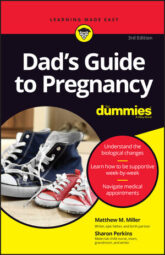Buying life insurance for your baby is a controversial and unsavory topic for new Dads. Many financial experts say it's a waste of money because a life insurance policy is necessary only when the death of the individual causes financial stress on a family. For many lower- and middle-income families, however, a policy that would cover the funeral cost is well worth the monthly payment.
Basics of whole-life coverage versus term for dads
Not all life insurance policies are the same. Some policies are "rentals," covering a child through a certain age and then offering no more benefit. If you elect to go the "buying" route for a policy, it will start your child on the right track to financial security for retirement. You can choose between two basic types of policies that determine the price, coverage level, and longevity of the policy:
Whole-life coverage: As the name implies, a whole-life policy stays with your child for his entire life. This permanent insurance has a fixed premium that never increases as your child ages and offers the policy owner a guaranteed cash value against which the owner can borrow money in case of emergency.
The coverage is generally between $25,000 and $150,000. Buying whole-life coverage for your baby usually doesn't require a medical checkup. One of the more popular plans is available through Gerber, but most life insurance providers offer competitive plans, too. It is advised you speak with a professional before purchasing, though.
You can't cash out the whole-life policy at any time for full value, and depending on your financial situation, saving money in an interest-yielding account may be a better idea. That way, you can always access the money you've invested.
Term coverage: Term insurance is sometimes referred to as a "rental policy" because the named person on the policy never owns it like one does with whole-life coverage. Think of it as a magazine subscription with huge financial benefits: As long as you have a subscription, you're covered; when the subscription runs out — that is, when the policy expires — you stop getting coverage.
The money you invest is simply going toward "what if" protection. The cost is generally a fraction of the price of whole-life coverage, which is why it's such an attractive option for some parents. Plans generally come in 10- to 30-year terms, with coverage ranging from $25,000 to $150,000. However, premiums aren't fixed and do increase as your baby ages.
How much coverage is enough for your baby?
Determining how much coverage you should buy depends on your budget. Buy only what you can afford. The more payout benefit you purchase, the more you pay each month. If you're purchasing term insurance, you don't need to buy a policy that exceeds the costs of a funeral and, perhaps, any wage losses due to unpaid leave during your grieving period.
Talk with a financial planner to determine whether a whole-life policy is actually the best investment for your child or whether another form of savings would yield bigger rewards for him down the road — and still provide you a safety net in case of death.

